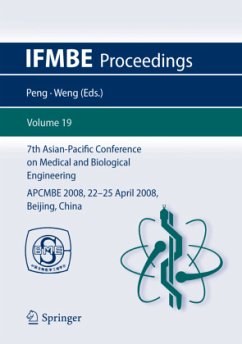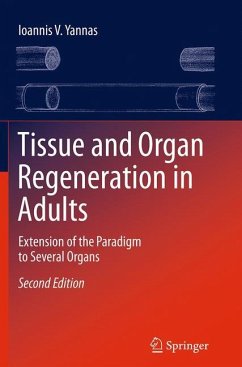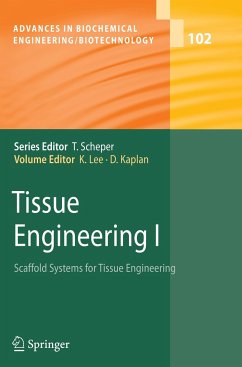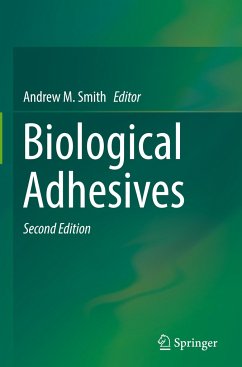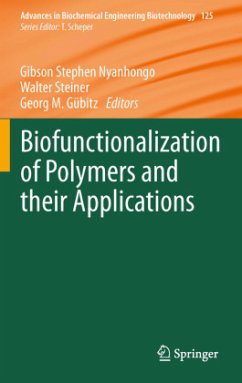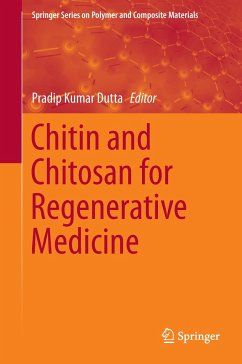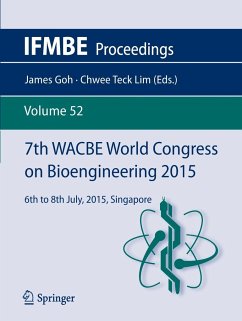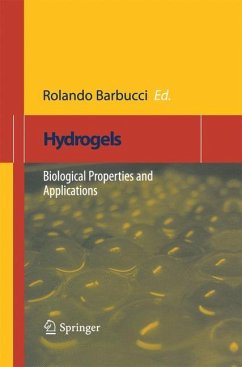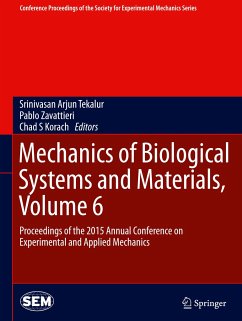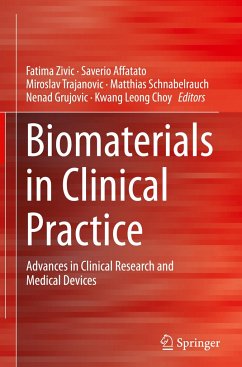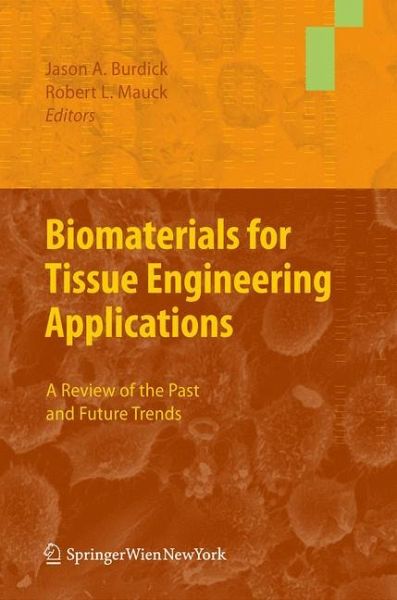
Biomaterials for Tissue Engineering Applications
A Review of the Past and Future Trends
Herausgegeben: Burdick, Jason A.; Mauck, Robert L.
Versandkostenfrei!
Versandfertig in 6-10 Tagen
149,99 €
inkl. MwSt.

PAYBACK Punkte
75 °P sammeln!
A concise overview of tissue engineering technologies and materials towards specific applications, both past and potential growth areas in this unique discipline is provided to the reader. The specific area of the biomaterial component used within the paradigm of tissue engineering is examined in detail. This is the first work to specifically covers topics of interest with regards to the biomaterial component. The book is divided into 2 sections: (i) general materials technology (e.g., fibrous tissue scaffolds) and (ii) applications in the engineering of specific tissues (e.g., materials for c...
A concise overview of tissue engineering technologies and materials towards specific applications, both past and potential growth areas in this unique discipline is provided to the reader. The specific area of the biomaterial component used within the paradigm of tissue engineering is examined in detail. This is the first work to specifically covers topics of interest with regards to the biomaterial component. The book is divided into 2 sections: (i) general materials technology (e.g., fibrous tissue scaffolds) and (ii) applications in the engineering of specific tissues (e.g., materials for cartilage tissue engineering). Each chapter covers the fundamentals and reflects not only a review of the literature, but also addresses the future of the topic. The book is intended for an audience of researchers in both industry and academia that are interested in a concise overview regarding the biomaterials component of tissue engineering, a topic that is timely and only growing as a field.





